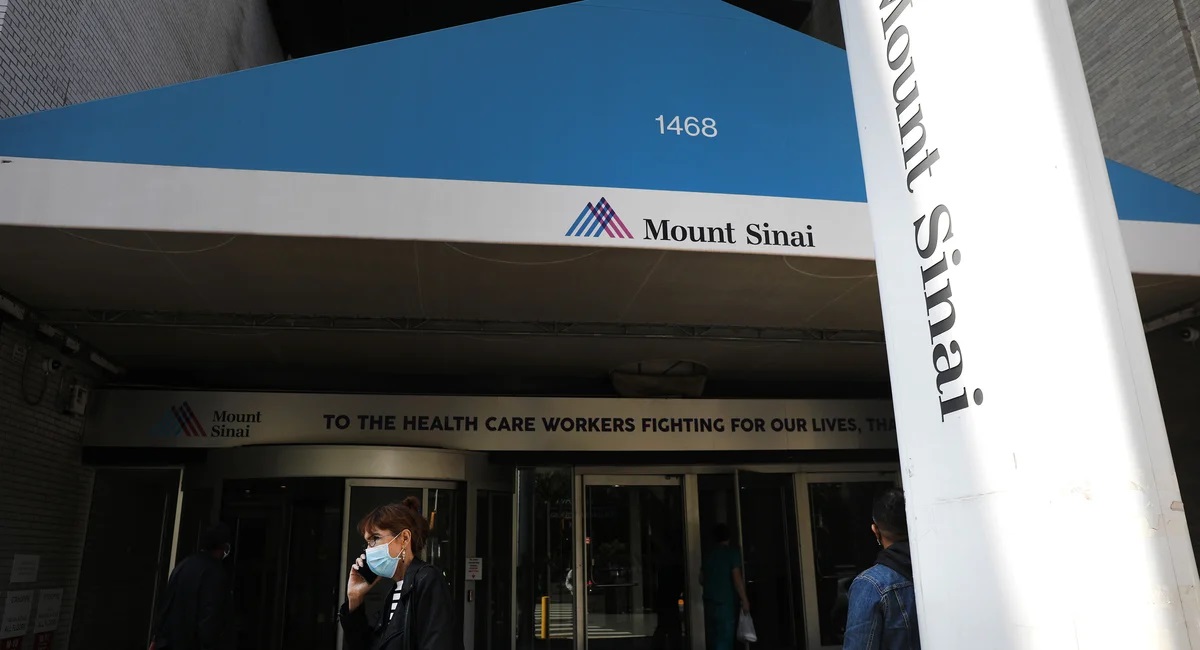
Mount Sinai Health System and UnitedHealthcare face a potential split, jeopardizing coverage for patients under UnitedHealthcare plans, including the Oxford Health Plan, effective January 1. UnitedHealthcare alleges Mount Sinai’s proposals could inflate costs for consumers and employers, while Mount Sinai aims to secure fair terms prioritizing patient care. The impasse highlights the imminent disruption of patients’ healthcare choices, emphasizing the financial and access consequences. This discord underscores the intricacies of provider-insurer negotiations, impacting patients’ access, continuity, and emotional well-being. A collaborative resolution balancing care quality and affordability is pivotal. Stakeholders await an agreement, urging proactive communication to mitigate disruptions.
Mount Sinai Health System and UnitedHealthcare confront a critical juncture, facing the potential fallout of failed negotiations, potentially disrupting healthcare access for UnitedHealthcare-insured patients, notably those under the Oxford Health Plan, starting January 1. This impasse stems from divergent perspectives on proposed terms, with UnitedHealthcare cautioning against inflated costs, while Mount Sinai asserts its commitment to patient-centric agreements. Beyond financial implications, this conflict portends substantial disruptions to patients’ healthcare continuity and emotional well-being. The complexity of provider-insurer negotiations underscores the delicate balance between care quality and financial viability. As stakeholders brace for potential disruptions, the pressing need for an equitable resolution amplifies.
UnitedHealthcare, via its website, has accused Mount Sinai of presenting proposals deemed unrealistic, alleging that they could substantially escalate premiums and out-of-pocket costs for consumers. The insurer also highlighted concerns about increased operational expenses for employers if such proposals were to be accepted.
In response to these contentions, a spokesperson from Mount Sinai conveyed to Gothamist on December 27 that the health system has been earnestly engaging in negotiations with UnitedHealthcare. Their primary aim is to establish a fresh, equitable agreement that prioritizes patients’ well-being, aiming to safeguard their ability to select Mount Sinai for their healthcare needs. The spokesperson expressed hope for reaching a mutually agreeable resolution before the culmination of 2023.
This impending standoff between Mount Sinai Health System and UnitedHealthcare underscores the potential disruption and stress faced by patients who rely on their current insurance plans to access Mount Sinai’s services. If the two entities fail to reach a consensus, individuals holding UnitedHealthcare plans would potentially encounter challenges in accessing care at Mount Sinai facilities, significantly impacting their healthcare choices and continuity.
The crux of the disagreement appears rooted in the contrasting viewpoints regarding the financial implications and operational aspects of the proposed contract. UnitedHealthcare emphasizes concerns about the financial burden that Mount Sinai’s propositions might impose, pointing towards potential escalations in premiums and out-of-pocket expenses for plan holders. Simultaneously, Mount Sinai remains committed to advocating for terms that, in their view, uphold patient interests while ensuring the health system’s sustainability and quality of care.
The potential consequences of this discord extend beyond mere financial implications. Patients often develop long-standing relationships with their healthcare providers, and disruptions in coverage could compel them to seek alternative care options, causing inconvenience and potential delays in treatment. Moreover, the uncertainty surrounding coverage may create anxiety and stress for individuals dependent on Mount Sinai for their ongoing medical needs.
Negotiations between healthcare providers and insurance companies are intricate processes that involve balancing financial viability, quality of care, and accessibility for patients. However, the outcome of these negotiations profoundly impacts the lives of individuals reliant on these services for their well-being.
Both Mount Sinai Health System and UnitedHealthcare have a vested interest in reaching a compromise that ensures uninterrupted access to quality healthcare while mitigating the financial burden on patients and employers alike. Collaborative efforts and concessions from both parties could pave the way for a resolution that prioritizes patients’ needs and maintains the stability of healthcare services.
As the deadline approaches, patients and stakeholders affected by this potential network disruption remain hopeful for an amicable agreement that safeguards patient choice, accessibility, and affordability without compromising the quality of care provided by Mount Sinai Health System.
In the interim, affected individuals are advised to stay informed, explore alternative coverage options if available, and maintain open communication with both UnitedHealthcare and Mount Sinai to mitigate any potential disruptions in accessing necessary medical care.
The impending discord between Mount Sinai Health System and UnitedHealthcare signifies an imminent upheaval in healthcare access for affected patients, poised to commence on January 1. This rift, rooted in diverging views on proposed terms, poses profound implications beyond financial considerations, directly impacting patient care continuity and emotional well-being. The urgency for a collaborative resolution that upholds patient choice while ensuring care affordability remains paramount. Stakeholders eagerly await a negotiated agreement, emphasizing the need for proactive communication to mitigate disruptions and maintain access to quality healthcare services. The imminent deadline underscores the significance of balancing financial prudence and patient-centered care in these intricate provider-insurer negotiations.


